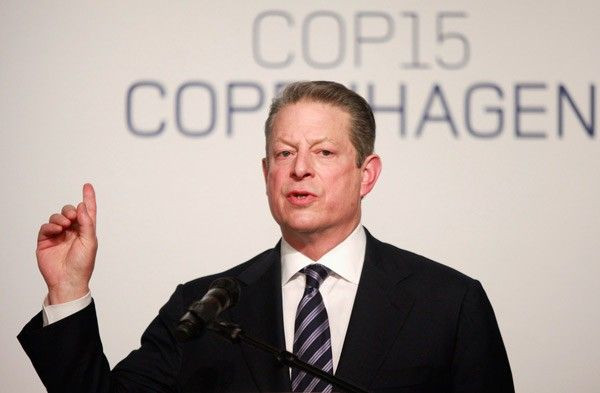Scientist Attempts to Debunk Global Warming: Legit Data or Political Ploy?

A scientist is claiming that data from a NASA satellite could disprove the theory of global warming.
Roy Spencer, research scientist at the University of Alabama in Huntsville and U.S. science team leader for the Advanced Microwave Scanning Radiometer, used data from NASA's Terra satellite to study the Earth's climate. According to Spencer, the Earth is more efficient at releasing energy than models used to forecast climate change (like global warming) have led people to believe.
"The satellite observations suggest there is much more energy lost to space during and after warming than the climate models show," Spencer said. "There is a huge discrepancy between the data and the forecasts that is especially big over the oceans."
Numerous scientists have long studied global warming as a legitimate theory on climate change and how it will damage the environment. It was the subject of a popular documentary, An Inconvenient Truth, starring former Vice President Al Gore. In the movie, Gore talked about how greenhouse gasses emitted by human creations lead to carbon dioxide trapping heat from the sun in the atmosphere.
However, Spencer used data from the satellite between 2000 and 2011 to dispute the notion of global warming. He says his data indicated that far less future global warming will occur than United Nations' computer models have predicted. He said while global warming models show the climate absorbing solar energy until a warming event peak, his data showed the climate system shedding energy more than three months before the typical warming event reaches its peak.
"At the peak, satellites show energy being lost while climate models show energy still being gained," Spencer said.
Spencer said when this is applied long-term the climate isn't as sensitive to the carbon dioxide concentrations that global warming scientists have theorized about. He also disputes the notion of cloud covering, which scientists say would cause additional global warming. He says there are too many variables to see what could be impacted from manmade greenhouse gases.
"There are simply too many variables to reliably gauge the right number for that," Spencer said. "The main finding from this research is that there is no solution to the problem of measuring atmospheric feedback, due mostly to our inability to distinguish between radiative forcing and radiative feedback in our observations."
However, not every climate scientist is on board with Spencer's work, which appears in a recent issue of the journal Remote Sensing. In an article with LiveScience, numerous climate scientists said Spencer's work wasn't reliable.
Kevin Trenberth, a senior scientist at the National Center for Atmospheric Research, said the research's conclusion, such as the one on cloud covering, doesn't come with clear data analysis. Others called it a political ploy and a manipulation of data.
"It makes the skeptics feel good, it irritates the mainstream climate science community, but by this point, the debate over climate policy has nothing to do with science. It's essentially a debate over the role of government," surrounding issues of freedom versus regulation, Andrew Dessler, a Texas A&M University of atmospheric sciences, said to LiveScience.
© Copyright IBTimes 2024. All rights reserved.





















